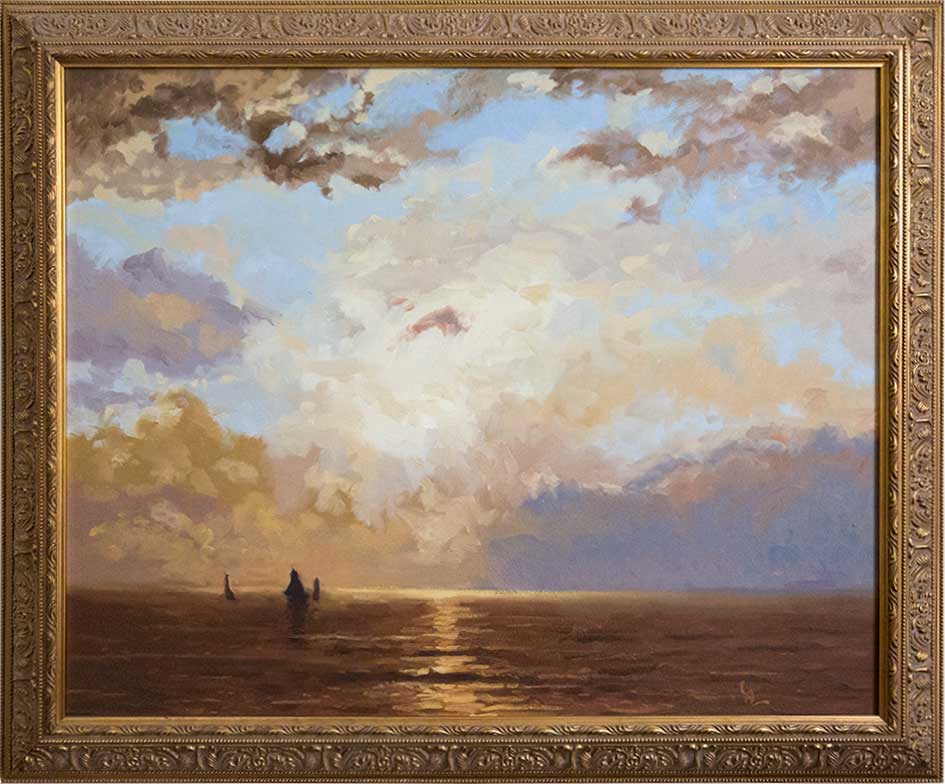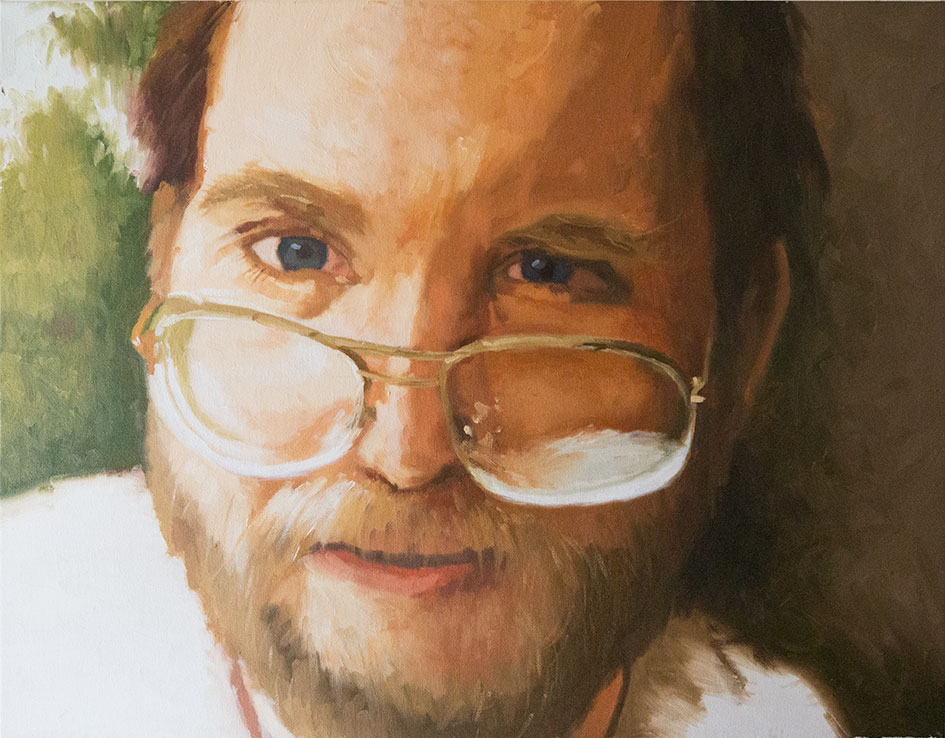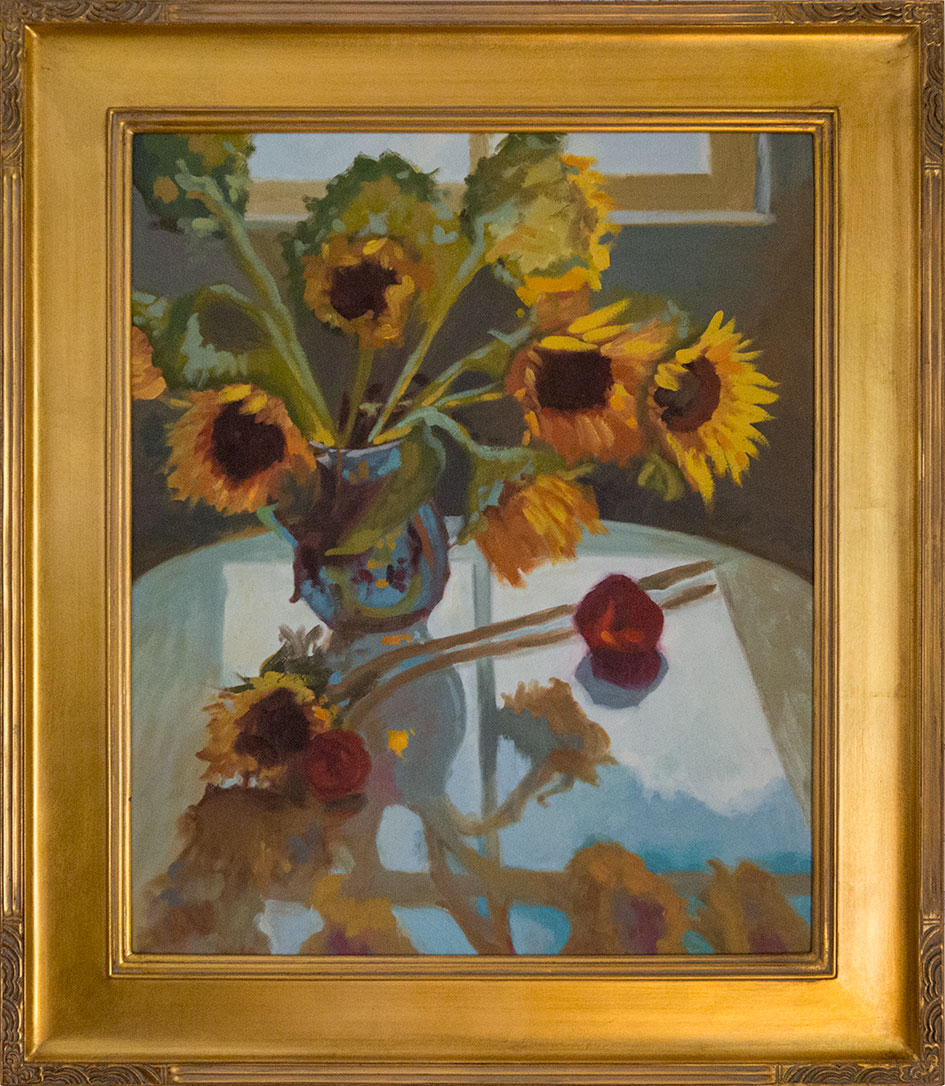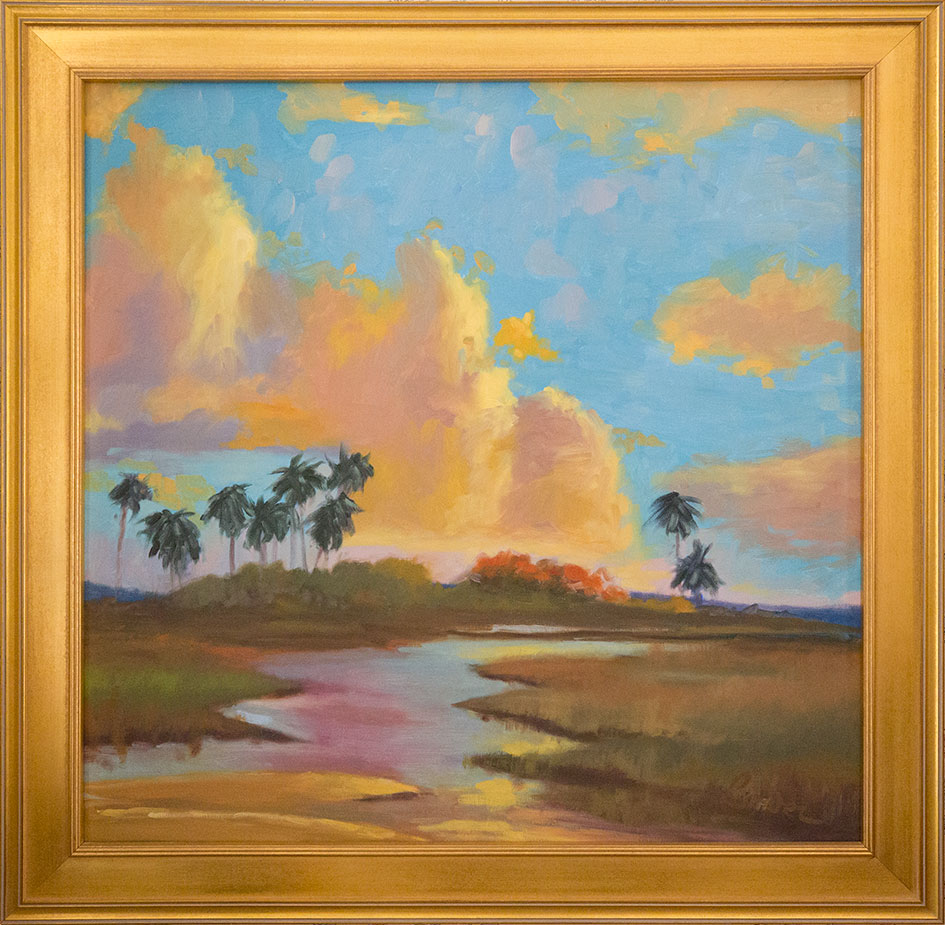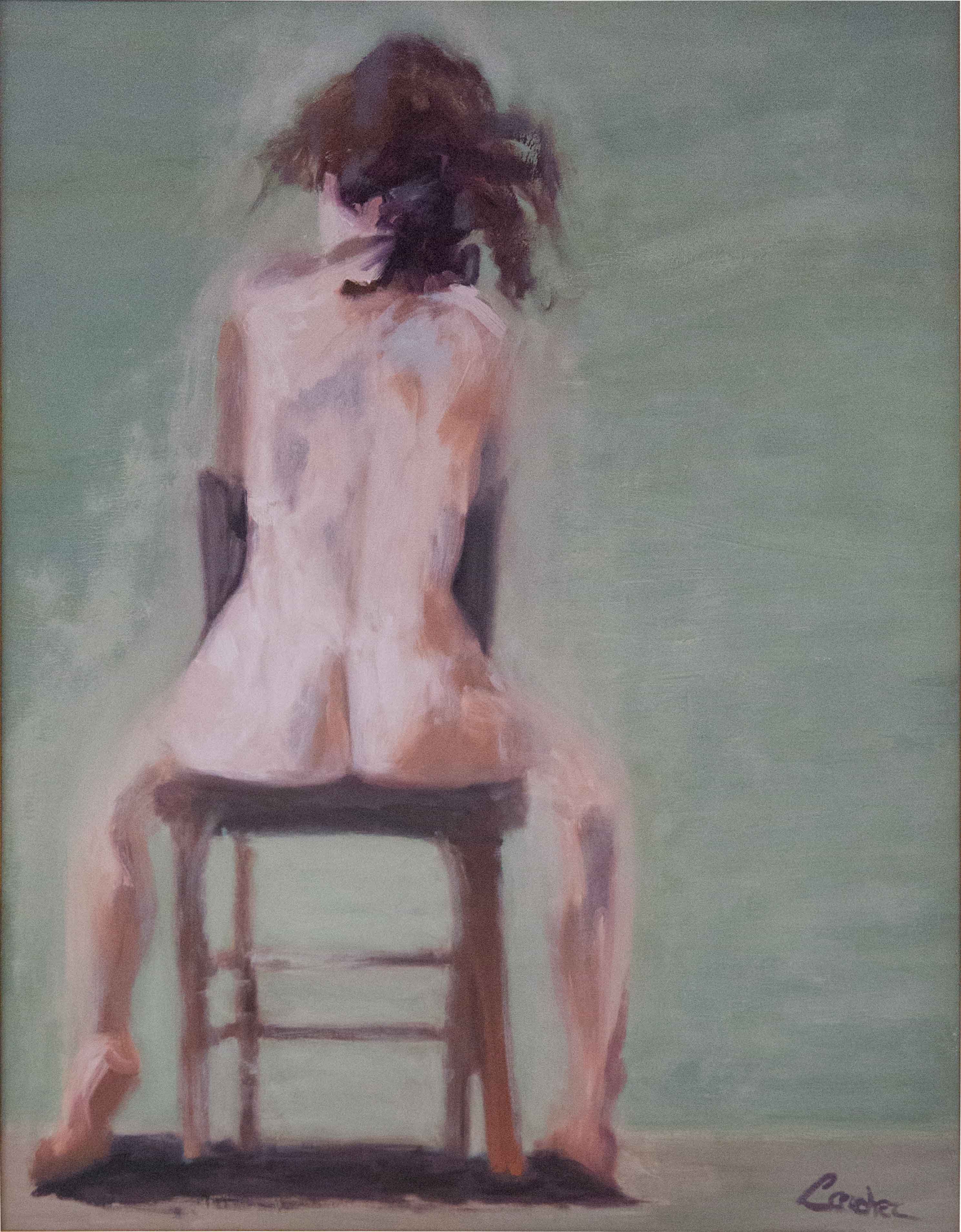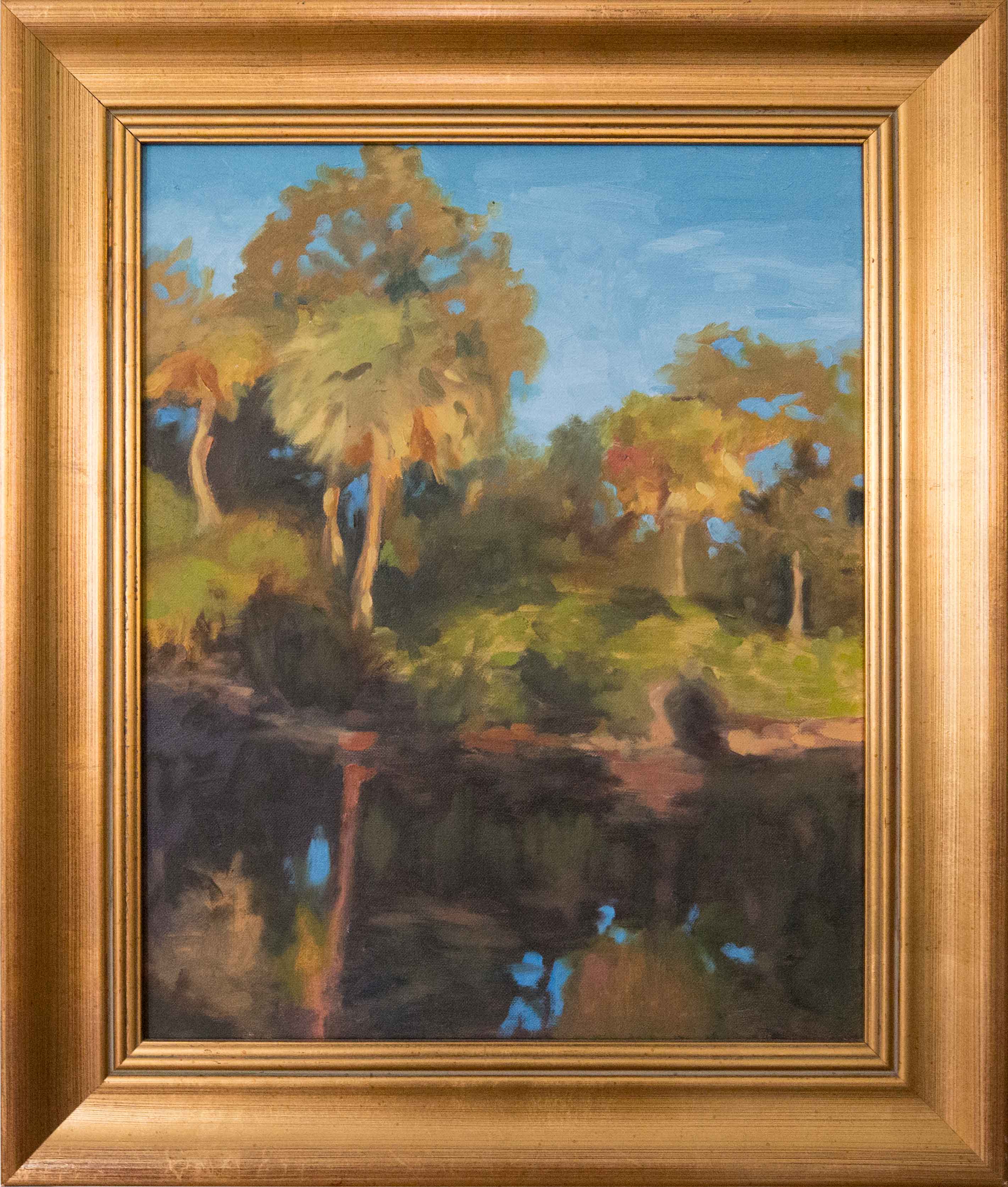offCampus
Paintings and Programs
On campus, Linda Archer, PhD, is Vice Dean of Graduate Medical Education and Professor of Family and Community Medicine. Off campus, the 35-year EVMS employee creates what might be mistaken for 19th-century Impressionist masterpieces, some of which are on display in the hallways and offices of the GME department.
What sparked your interest in painting?
While attending a writing retreat, a facilitator said, “You know you are a writer if you pass a street scene and begin to envision a story.” I realized that when I passed a street scene, I saw pictures, not stories. That experience led to my interest in painting.
What do you enjoy most about painting?
I treasure being lost in the process of transforming a white canvas to a work of art. I studied under Norfolk artist Charles Kello, who was a master of creating light and mood. He only allowed the use of six basic paint colors from which all other colors, tones and tints had to be mixed. It is magical. After all my years of painting, I’m still fascinated by the process.
What type of painting do you do?
My medium is oil, and I call my style “realistic impressionism” as my images flow between visual reality and impressions of reality.
Do you see any connection between painting and your work at EVMS?
My work is providing service and support for the residency and fellowship programs — the directors, residents and fellows, and residency coordinators. The process of doing so is similar to approaching a blank canvas, developing a theme and then adding color, form and texture to complete the work. I have always heard that medicine is an art and a science. I believe that to be true for all occupations. We bring our skills, but we also bring ourselves and experiences beyond the required job skills — we bring the art.
What are you most passionate about in your work at EVMS?
I bring a passion for service — actualized through the service that Graduate Medical Education provides. At a recent national meeting, one presenter said, “Joy is something you get at the other end of service.” While I hadn’t thought about my work in that way, I realized that most of the joy and passion in my daily work relates to the service provided to support the training of the next generation of physicians.

